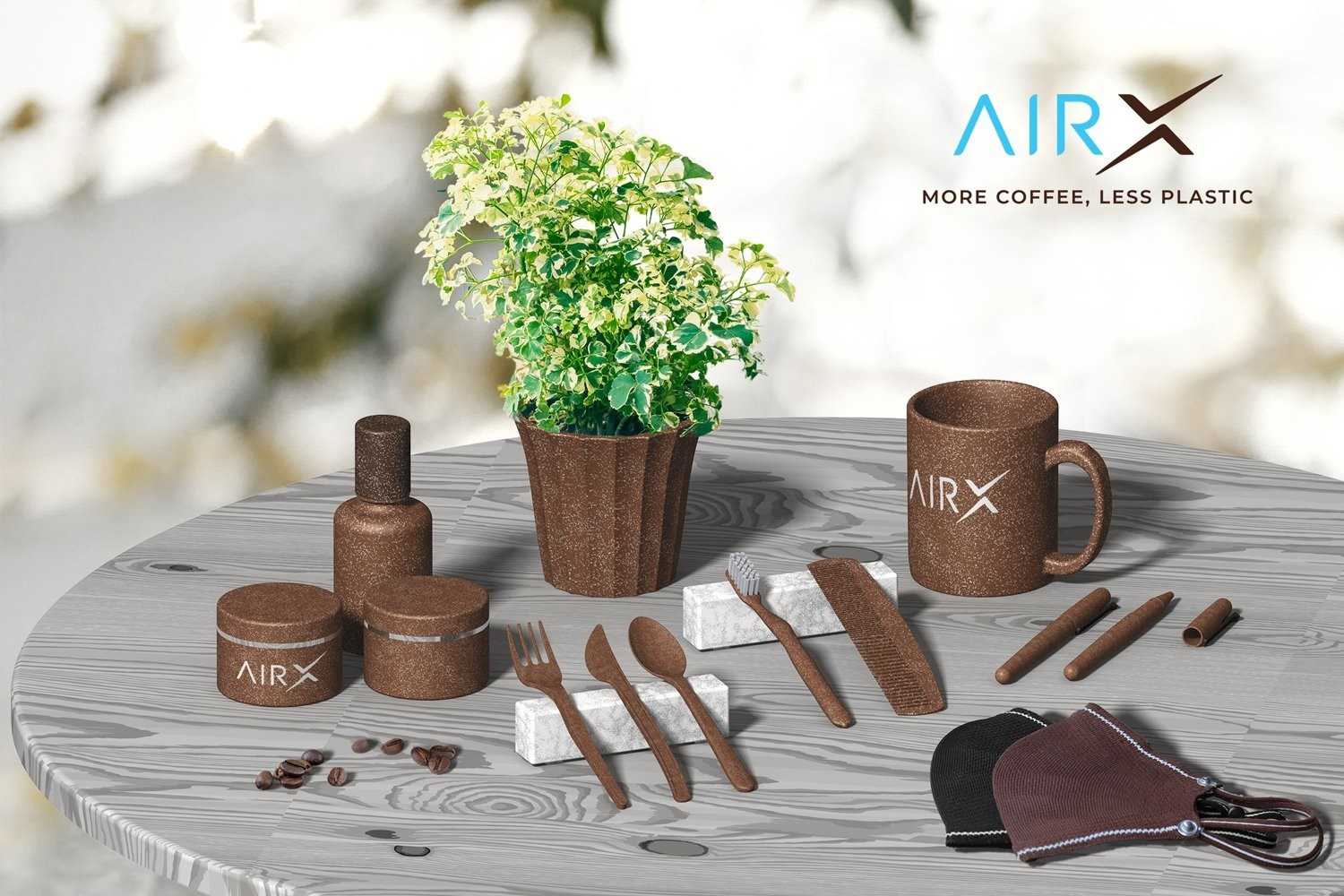HO CHI MINH CITY, Vietnam – Continuing the success of the world’s first coffee face mask, the new material from AirXcoffee is meaningful when the COVID-19 pandemic has worsened the pollution situation in the world. The public health crisis has led to a surge in pollution from disposable products like surgical masks, plastic cups, and hand sanitizer bottles.
The Australian government banned plastic bag usage in 2011. Vancouver also became the first major city in Canada to ban plastic straws, in a move towards the city’s new Zero Waste 2040 initiative, while the European Union approved a ban on certain single-use plastics that will go into effect in July 2021.
The new material, coffee bio – composite made from coffee ground is considered an ideal material to replace the traditional plastic. AirXcoffee has been successful in sourcing coffee grounds to turn into Coffee Bio-Composite, which can be used to replace tableware, polystyrene cup, flowerpot and everything that can be made of plastics. In addition, the new material has applied a three-star OK Bio-based certification of TUV AUSTRIA, which has bio-based content between 60% and 80%. Also, the material is marked food safe by TUV Rheinland.
In order to make the material, coffee grounds from local coffee shops in Vietnam are collected, dried, and mixed with recycled materials, starch, cellulose, wood, natural resins, waxes, and oils. The resulting coffee composite is bio-based, recyclable, light, with a smell of coffee and the look of dark wood.
“The new material is more competitive than the traditional plastic. With 10% cheaper in price than oil-based plastic, coffee bio-composite is expected to help Vietnamese plastic industry to have better competitiveness in the global market. It also helps Vietnam to reduce reliance on fossil-based materials,” Thanh Le, the founder, explained the advantage of his new material. “Coffee ground is popular in Vietnam. Being the world’s second-biggest coffee exporter, Vietnam is the best place for us to produce this world’s first coffee bio-composite,” he added.
“When we decided to design a new material back in 2020, we knew early that we wanted a solution that uses local materials, is easy to produce and inexpensive, with the added bonus of being biodegradable.”
The researchers believe the coffee bio-composite is a good alternative to the synthetic plastics currently in use. “With billions of disposable plastics already polluting city sidewalks and potentially entering our rivers and oceans, we urgently need an eco-friendly option to avoid making a massive impact on our environment,” says Prof. Phu Huynh, Dean of the Faculty of Material, Ho Chi Minh City University of Technology.
The material is complete in the university lab, and a shift to cost-effective scaling and production will be ready in June 2021.
“The revolution is not only expected to help limiting the single-use plastic, but also preventing coffee grounds from going to landfills and releasing methane gas, which has a greenhouse effect 28 times higher than carbon dioxide”, he cited a scientific research.
Before the coffee bio-composite material was introduced, AirXcoffee has succeeded selling daily thousands of AirX Coffee Mask, the reusable face masks made of coffee to over 50 countries around the world.

















 CAPS: the new proprietary system using capsules made of 85% recycled aluminium
CAPS: the new proprietary system using capsules made of 85% recycled aluminium